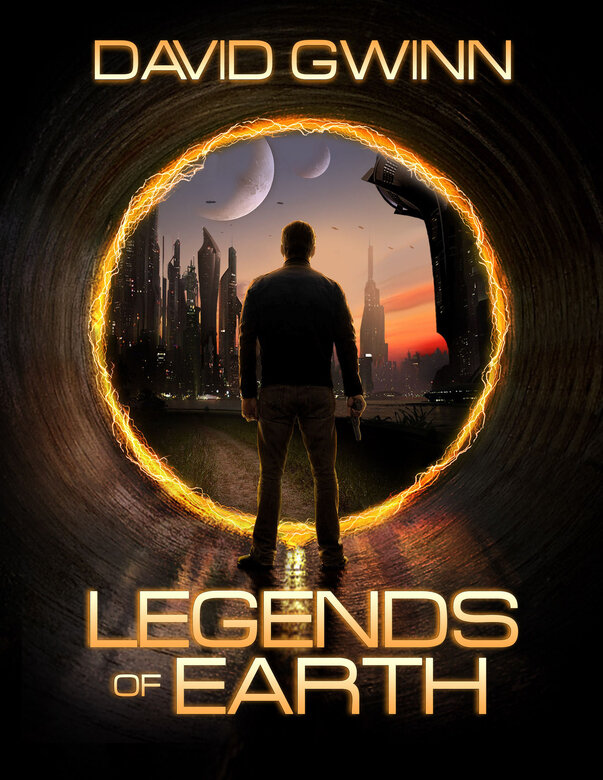
A science fiction adventure with some downright Shakespearean twists, Legends of Earth by David Gwinn is a breathless mash-up of police procedural and space opera that is a page-turner from the first page.
When a seasoned cop is pulled into a mind-boggling new case – a woman single-handedly cutting the power and knocking over banks in broad daylight – Officer Sharpe has no idea how deep this new rabbit hole will go. He certainly doesn’t expect it to carry him to the other side of the galaxy – to a planet that seems to desperately need his help.
Tass, the trickster bank heist rebel, tasks Sharpe to locate her sister, the leader of a fanatical faction determined to cleanse their planet, but when alien police officers get caught in the investigative crossfire, Sharpe has his loyalties pulled in dangerously different directions. If Sharpe ever wants to go home again, he’ll have to put his fugitive-tracking skills to the test, along with learning how to adapt to this female-led alien world, dodge would-be assassins, and navigate aggressive flirtation from every side.
The dynamic between Tass and Sharpe is fascinating and taut with tension, especially once Tass’ ulterior motives are called into question. Nikki’s connection to Sharpe is just as intriguing, and despite entering the action later, her presence drives the remainder of the story. The plot moves quickly, as the novel is quite short, and while that does limit space for character development, it means that this short sci-fi escapade can be devoured in an afternoon.
That said, the story could afford to slow down, as there is a lack of emotional decompression or processing as this wildly swinging plot advances; twisted revelations, betrayals, and potential heartbreaks seem readily glossed over, as though they have little effect on the characters. Certain moments in the plotline are also hard to swallow, even after some healthy suspension of disbelief, such as Sharpe figuring out how to speed through traffic on a hover car mere moments after sitting in one for the first time.
Similarly, there are many direct parallels between our world and this fictional planet on the other side of the galaxy, down to the near mirror image of police department hierarchies, idiomatic language patterns, and tech development trajectories, which feels at times like cutting corners. The pleasure of pop science fiction comes from unlimited world-building, and some of that freedom feels lacking in Gwinn’s anthropocentric exposition, even with the potential for social commentary. The narrative also tends to lean heavily towards the male gaze; Sharpe’s libido is hard to keep track of, as is the seemingly constant sexual tension being hinted at between various characters. This comes as a bit of a surprise, as Gwinn clearly enjoys the flip of gender roles, which allows for meaningful exploration of sexuality, power, boundaries, and morality.
On a purely technical level, the writing is polished, with few obvious errors and well-edited prose that keeps the action flowing at an addictive clip. While the story could be expanded, there are thematic details throughout that elevate the book over a surface-level work of sci-fi. From political manipulations to justice for oppressed minorities, the novel is continually surprising, offering incisive wisdom about modern life for keen-eyed readers.
Book Links
STAR RATING
Design
Content
Editing
Get an Editorial Review | Get Amazon Sales & Reviews | Get Edited | Get Beta Readers | Enter the SPR Book Awards | Other Marketing Services























Leave A Comment